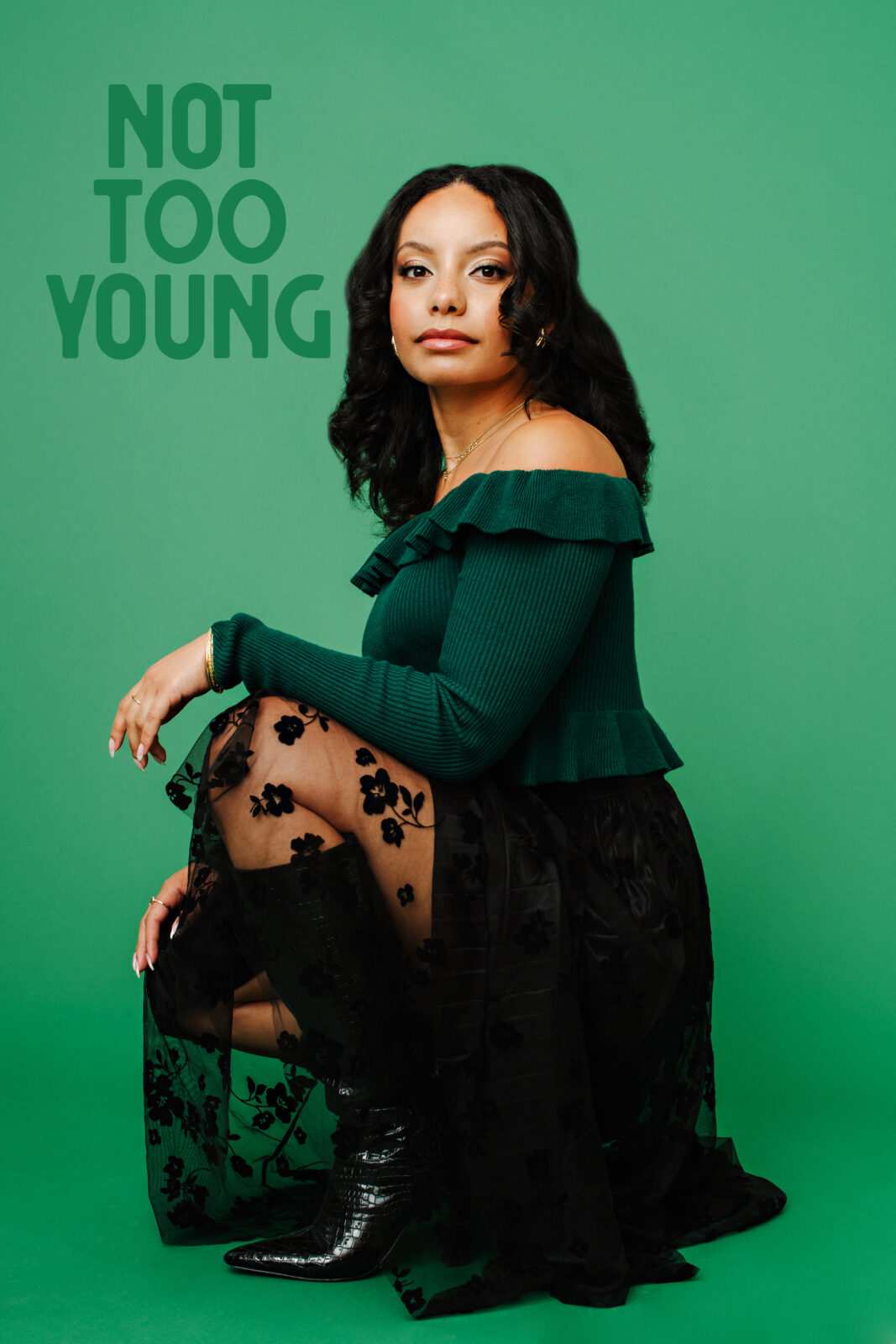
Robin
About me
My name is Robin. I am single. I work for a law firm in North York as a Paralegal Student. I love watching hockey and going to summer concerts and game nights with friends. I am a proud Canadian of Bajan (Barbados) and Italian descent. I am currently 27 years old. I was 24 years old when diagnosed.
My breast cancer story
In the spring of 2021, at 23 years old, I first felt a burning pain in my left breast. Shortly afterwards, I discovered a lump. My GP confirmed the lump and sent me for an ultrasound. The radiologist noted the lump but due to my age and its appearance did not think it was cancerous and recommended follow-up in three months. Over the course of the year, the lump grew, but the radiologist continued to dismiss it as non-cancerous. When the lump grew to 4cm and the pain became unbearable, I demanded further testing. I was referred to a breast clinic in Markham, where a biopsy confirmed that I had Invasive Ductal Carcinoma.
The biggest barrier to my diagnosis was my age. Being 23/24, multiple healthcare professionals told me I was ?too young for cancer.? During this time, the cancer grew rapidly, and the lump doubled in size before I was diagnosed. After a year of the tumour growing, I had to push my GP to send me for a biopsy to get a definitive answer.
The doctor who diagnosed me was the same one who initially dismissed my concerns. He delivered the news as if it were a joke saying, ?Haha, so it turns out it is cancer?, leaving me in shock and disbelief. It wasn?t until I left the hospital that the gravity of the situation hit me. It was the most difficult thing having to tell my family and friends the news. I grieved not only for myself but for everyone who loved and cared about me too. I did not disclose my diagnosis with anyone outside of my inner circle until 2 months later when I lost all my hair and could no longer ?hide? it.
Initially diagnosed as stage 2 ER+ PR+, I began with fertility treatment and underwent 6 rounds of FEC-D chemotherapy. This was followed by a lumpectomy and a matching breast reduction. During radiation therapy, I learned the tumour was also HER2+, making my diagnosis Triple Positive. I then went through 22 rounds of immunotherapy. Chemotherapy was well tolerated, but I struggled with immunotherapy, which made me severely ill. It depleted my platelets to dangerously low levels. I had no energy and would have up to 12 nosebleeds a day, many of them lasting up to an hour before stopping. After months of trying to get my platelets back up, my oncologist finally decided to switch me to a different medication that did not make me quite as sick. After switching medications, my side effects improved. I struggled with medications like Exemestane and Tamoxifen, which caused severe bone and joint pain, before settling on Letrozole. I will continue to take Letrozole daily for five years and receive monthly Lupron injections and zoledronic acid infusions every six months.
I am currently in medically induced menopause, which has made weight management difficult and caused hot flashes.
Now in remission, I am dealing with the grief and loss I suppressed during treatment. I mourn the carefree person I was before my diagnosis and the trauma my body endured. The treatments have left me with permanent reminders and a changed body that I am working to accept.
I still work out and try to stay healthy, though menopause makes it harder on my joints and slows my recovery. Socially, I?m making up for lost time by spending time with friends and attending concerts. I want to enjoy and live life to the fullest.
My diagnosis delayed my paralegal program by a year and a half. As I was young and not settled in my career, I didn?t have health benefits and had to pay for fertility treatment and medications out of pocket, relying on government grants and compassionate meds programs. I continue to experience financial strain due to the cost of my daily pills and monthly injections.
I was overwhelmed by the love and support from my family and friends. They continue to show up for every event, speaking engagement, or fundraiser I?m part of. After my treatment, I felt compelled to become a voice for young women in healthcare. My experience challenged the belief that breast cancer only affects older women, and I became determined to raise awareness and advocate for better screening protocols. I?m involved in many breast cancer events and campaigns throughout Toronto, sharing my story to help young women advocate for their health.
I am doing well now. This is my first year since treatment, and I?m starting to feel like myself again. I still go to the hospital monthly for my injection, but it?s no longer in the cancer centre. My hair has grown back to almost its original length. To those who don?t know my story, I look ?normal.? However, I don?t think I?ll ever feel normal again. It?s not normal for a 27-year-old to be in menopause. I?ve accepted my new normal, but it doesn?t feel normal.
I?ve learned to advocate for myself and my health. I?ve discovered resilience and strength within me. After this experience, I know I can accomplish anything I set my mind to.
I want other young women to know to trust their intuition. You know your body best. If something feels wrong, speak up and push to be heard and taken seriously. Unfortunately, breast cancer in younger women is often diagnosed at later stages and tends to be more aggressive because they are dismissed as “too young” and aren’t educated on how to check their breasts. Breast cancer doesn?t discriminate based on age, race, or gender. I’m living proof of that.
